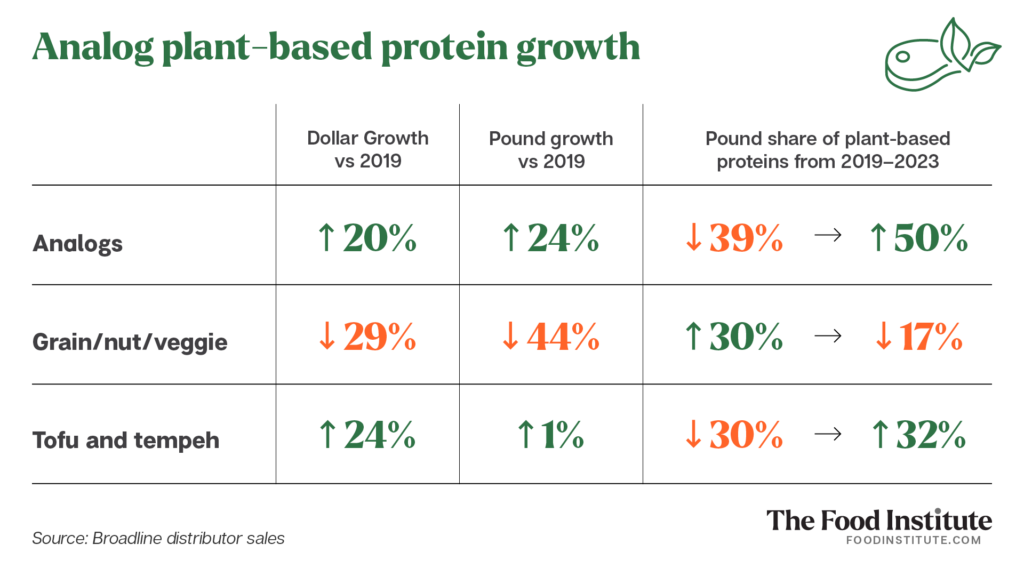ANAHEIM, Calif. – As the crowd at a hotel ballroom leaned in last Friday, Jay Margolis began describing the plant-based category’s path forward.
“Progress is not linear,” the CEO of SPINS reminded the crowd during Expo West 2024. “We’re right where we’re supposed to be. … When we talk about innovation, there are categories that are absolutely thriving within the (plant-based) space – look at what has happened with milks and creamers.”
Margolis acknowledged that not all consumers desire to make the full lifestyle change that comes with converting to a plant-based diet. Yet he feels that if companies within the plant-based space can continue to get consumers to implement at least some plant-based products into their diets, the segment can gain momentum.
Getting consumers to try plant-based items “has to be a stepwise process,” the SPINS CEO said. “So, the idea of being part of the plate … I think that’s really important.”
Friday’s panel didn’t gloss over some of the plant-based segment’s struggles. For example, one of the slides shown during the presentation noted that units of plant-based meat declined 19.4% in 2023.
Yet a few of the stats provided reason for optimism, such as:
- Plant-based foods have grown 79% in the past six years.
- Plant-based milk has a 44.1% household penetration.
- Alt-milk also has a 78.5% repeat rate.
- Tofu, tempeh, and seitan grew 3.5% in dollar sales in 2023.
“Plant-based shoppers span all ages and income levels,” said Linette Kwon, a data and consumer insights analyst with the Plant Based Foods Association.
Many industry stakeholders remain confident that opportunities exist for their businesses due to stats like this: seven in 10 U.S. adults have either never tried plant-based meat or have eaten it just a few times. They remain convinced that they can win over American consumers by getting them to incrementally add plant-based products onto their plates.
In 2024, many Americans are “plant curious,” said Bridget Siegel, COO of the Hart House plant-based restaurant chain.
So no, plant-based isn’t dead, panelists said. As Friday’s presentation concluded, panelists reminded attendees that progress often isn’t linear.
They also suggested that, moving forward, plant-based brands consider the following opportunities:
- Drive familiarity and trial among consumers.
- Strive to reach consumers intrigued by plant-based foods. They noted that 44% of American adults are willing to try plant-based products.
- Focus innovation on achieving taste and price parity.
The success of plant-based brands, by and large, will depend on “understanding where to place those bets,” said Simon Cutts, senior director – retail partners at SPINS.
“The way to keep progress going is embracing that innovation,” he added.













